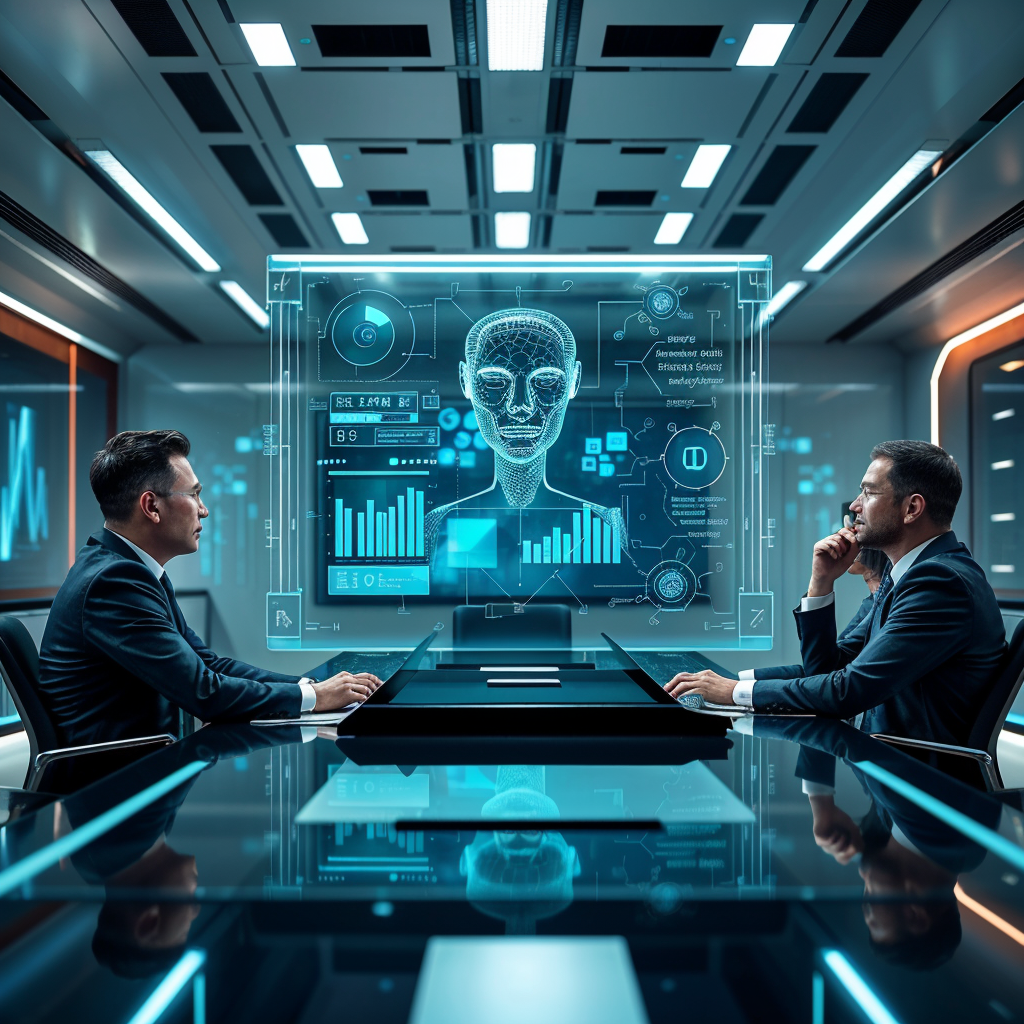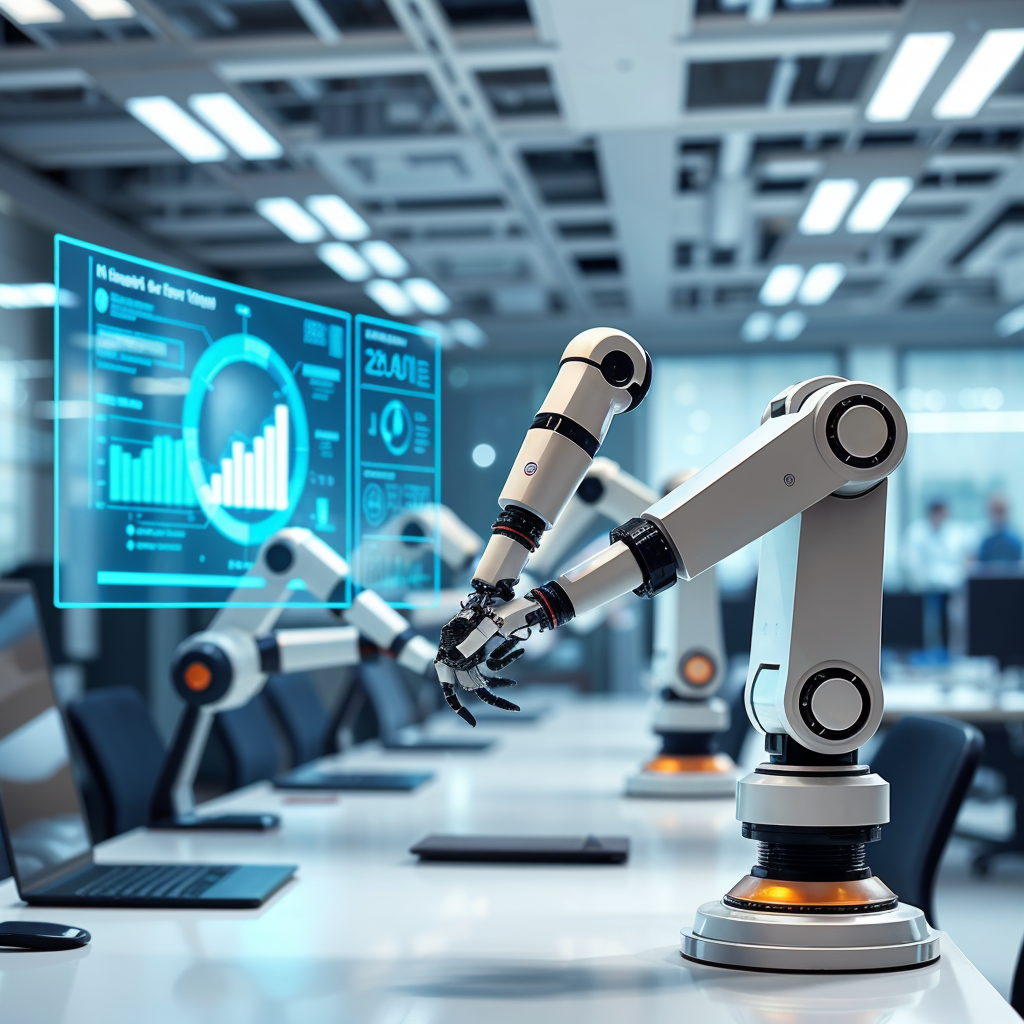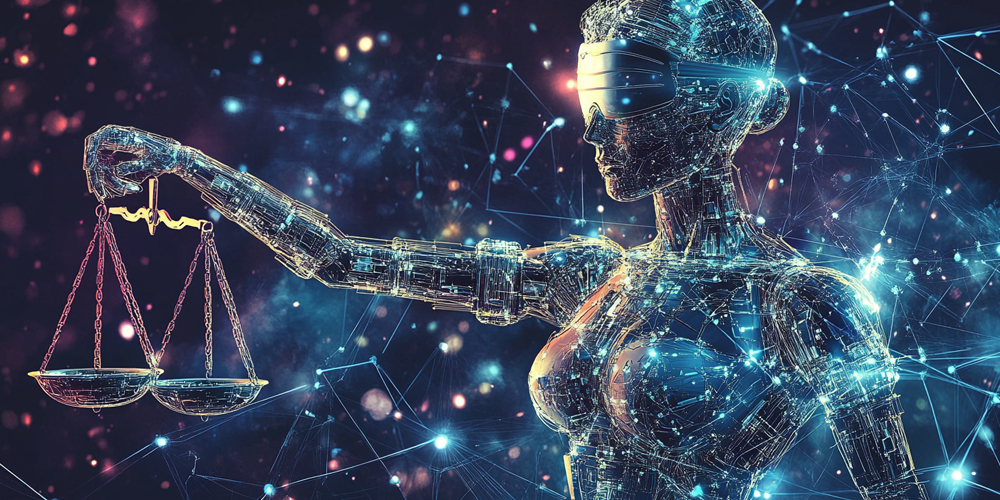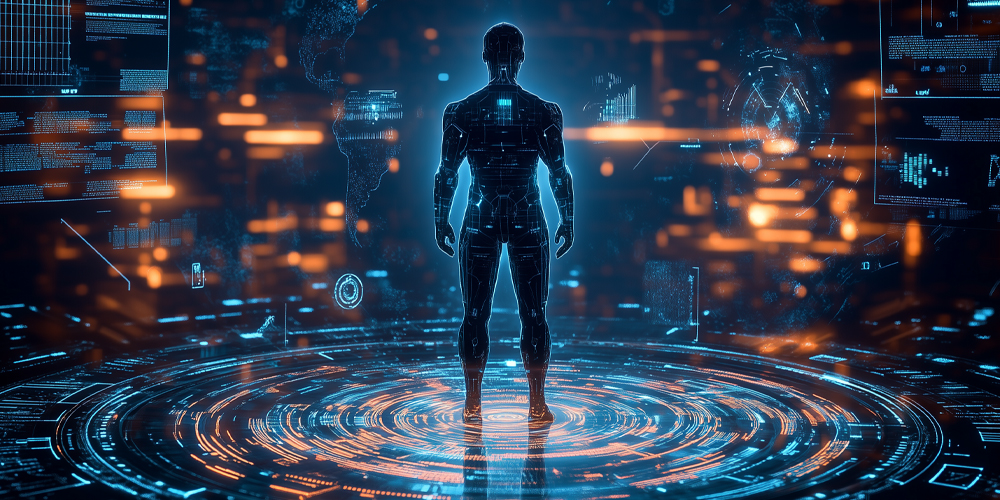Artificial Intelligence (AI) is no longer a distant concept from science fiction; it’s an integral part of modern business strategies. From customer service to advanced data analysis, AI has transformed how companies operate. The latest advancements in AI are rapidly shaping the future of industries, driving innovation, and changing the way we think about automation and efficiency.
What is Artificial Intelligence?
Artificial Intelligence refers to the capability of machines to mimic human intelligence. AI systems can perform tasks like decision-making, problem-solving, and even understanding language. These tasks were once thought to be exclusive to humans. The primary goal of AI is to create systems that can work independently, continuously improving their processes through machine learning.
The Evolution of AI
Although AI has gained significant momentum in recent years, the concept has been around for decades. The first wave of AI development focused on rule-based systems that followed strict algorithms. Over time, advancements in computing power and data storage have allowed AI systems to evolve. Today’s AI uses deep learning and neural networks to process massive amounts of data, allowing it to adapt and learn from experiences without human intervention.
The Role of Machine Learning
Machine learning is a subset of AI that has played a crucial role in recent advancements. By analyzing vast amounts of data, machine learning models can identify patterns, make predictions, and improve decision-making. These capabilities are invaluable to businesses that need to optimize their operations and deliver better services to their customers.
Key Advancements in AI Technology
The continuous innovation in AI has led to several groundbreaking advancements that are revolutionizing the business landscape. Let’s explore some of the most notable developments in AI.
1. Natural Language Processing (NLP)
One of the most significant breakthroughs in AI is Natural Language Processing (NLP), which allows machines to understand and interact with human language. From chatbots to voice assistants, NLP technology has improved communication between humans and machines. Businesses are using NLP to enhance customer service, automate responses, and create more personalized experiences.
2. AI in Data Analytics
Data is the foundation of modern businesses, and AI is transforming how data is analyzed. By leveraging AI-driven data analytics, companies can process large datasets in real time, uncovering insights that would take humans weeks or months to discover. AI-powered analytics enable businesses to make data-driven decisions, which improve efficiency and give them a competitive edge.
3. Autonomous Systems
AI is also making strides in the development of autonomous systems. From self-driving cars to automated drones, these systems are becoming increasingly capable of functioning without human oversight. In the business world, autonomous systems are being used in manufacturing, logistics, and even retail. For example, AI-powered robots can manage warehouses, reducing human errors and increasing productivity.
4. Computer Vision
Another major advancement in AI is computer vision, which enables machines to interpret and understand visual information. This technology is being applied in industries such as healthcare, where AI can analyze medical images to detect diseases early. It is also used in security systems, retail for inventory management, and in autonomous vehicles to help them navigate the physical world.
How AI is Shaping the Future of Business
AI is more than just a technological advancement; it is transforming how businesses operate at every level. From streamlining operations to improving customer experiences, AI’s impact is felt across all sectors.
1. Automating Routine Tasks
One of the most immediate benefits of AI for businesses is its ability to automate routine tasks. Whether it’s data entry, scheduling, or responding to basic customer inquiries, AI systems can handle these tasks quickly and accurately. This frees up human employees to focus on more strategic, value-added activities.
2. Enhancing Customer Service
AI is also improving how companies interact with their customers. With the help of AI-powered chatbots and virtual assistants, businesses can provide 24/7 support, answer customer questions in real time, and resolve issues without human intervention. These systems use machine learning to become better at handling customer interactions over time, resulting in improved customer satisfaction.
3. Personalizing Marketing Strategies
AI algorithms have revolutionized the way businesses approach marketing. By analyzing customer data, AI can predict consumer behavior, personalize marketing messages, and even recommend products based on individual preferences. This level of personalization increases customer engagement and improves conversion rates.
4. Optimizing Supply Chain Management
AI is also being used to optimize supply chain management. By analyzing factors like demand, production capabilities, and transportation logistics, AI systems can identify potential bottlenecks and suggest ways to improve efficiency. AI-driven supply chain systems allow businesses to reduce costs, streamline operations, and respond more quickly to market demands.
The Ethical Implications of AI in Business
While the benefits of AI are undeniable, it also raises ethical concerns. As AI becomes more integrated into business operations, companies must address these concerns to ensure responsible use of technology.
1. Data Privacy
AI systems rely heavily on data to function, but this raises questions about data privacy. Businesses must ensure that they are collecting, storing, and using data responsibly. They need to comply with regulations such as the GDPR to protect customer privacy and avoid potential legal issues.
2. Workforce Displacement
AI’s ability to automate jobs has led to concerns about workforce displacement. While AI creates new job opportunities in technology and data science, it may also lead to the elimination of certain roles, particularly those that involve repetitive tasks. Businesses must consider how to retrain and upskill their workforce to adapt to these changes.
3. Bias in AI Algorithms
AI systems are only as good as the data they are trained on. If an AI model is trained on biased data, it may produce biased outcomes. This is particularly concerning in areas such as hiring, where biased algorithms could lead to unfair decisions. Ensuring that AI systems are trained on diverse and representative data sets is crucial for fairness and accuracy.
4. Accountability and Transparency
As AI becomes more autonomous, questions arise about accountability. Who is responsible if an AI system makes a mistake or causes harm? Businesses must implement transparent systems that ensure AI decisions can be traced and understood. Establishing accountability is essential for building trust in AI systems.
The Future of AI in Business
The future of AI in business looks incredibly promising. As AI continues to evolve, it will become even more powerful and accessible to companies of all sizes. The potential for growth and innovation is vast, but businesses must be prepared to navigate the challenges that come with it.
1. AI and the Future of Work
The rise of AI will inevitably change the future of work. While some jobs may be automated, new roles will emerge in areas like AI development, data analysis, and cybersecurity. Businesses must stay ahead of these changes by investing in employee training and education to ensure their workforce can adapt.
2. AI in Emerging Markets
AI is not limited to developed economies. Emerging markets are also seeing the benefits of AI adoption. In countries where access to resources and infrastructure is limited, AI can help businesses leapfrog traditional technologies and adopt more efficient solutions. AI has the potential to drive economic growth and innovation in these markets.
Conclusion
The latest advancements in artificial intelligence are revolutionizing how businesses operate. From automating routine tasks to optimizing supply chains, AI is helping companies become more efficient and competitive. However, with these advancements come ethical challenges that businesses must address. The future of AI is bright, and those who embrace its potential will undoubtedly shape the future of industries worldwide.







